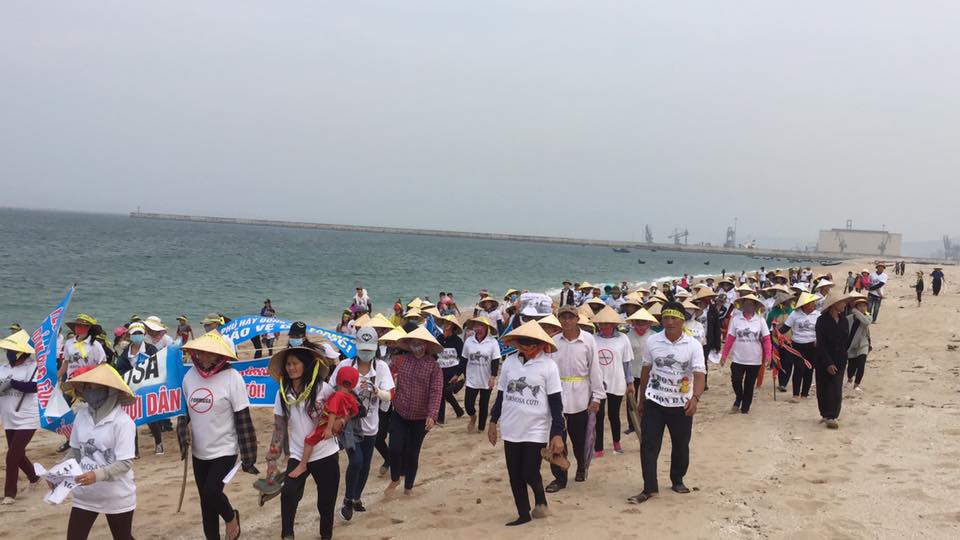May 7,2005 TAIPEI-Alarmed by a surge in young brides arriving from Vietnam for Taiwanese aging bachelors, the government this year set a new “20” policy that states the age difference between spouses should be less than 20 years. Brides also must be at least 20 years old. The object is to prevent problems related to marriages involving imported brides. It also masks deeper, more complex social issues.
The fabric of Taiwan society is changing. Long gone are the days of the traditional matchmaker. The birthrate has dropped, as more Taiwanese women opt to stay single or hold out longer before marriage. Vietnamese brides are one solution, but the Taiwanese government now wants to weed out such “unnatural weddings” out of consideration to Vietnam, a country emerging as an important business partner.
Another aim is to differentiate Taiwan from China, letting the world know that here is a land that respects democracy and human rights. Yet demand is rising. Importing brides has become a booming business orchestrated by marriage brokers and wedding planners. Estimates are that about 100 to 300 marriage brokers are in business in Taiwan. The most popular operation is the “bullet speed wedding” in Vietnam. One successful broker, Lonchen Co. based in Kaohsiung, in southern Taiwan, offers a quickie matchmaking and wedding package that lasts four nights and five days. In the fun-packed tour, Taiwanese men visit Vietnam, pick a bride and return home married men. On average, five or six couples tie the knot through the service each month, the company says. The matchmaking, about 10 hours for introductions, takes place in the first two days. Potential partners who hit it off proceed to the next stage on day three, visiting the Council of Local Authorities for International Relations, a branch office of the Taiwanese government, to arrange to register the marriage. If things go smoothly, the wedding and reception take place the next day. It’s all included. The company charges grooms who manage to find a bride Taiwan $200,000 (660,000 yen). The groom also shoulders such costs as paying for the bride’s dress and trousseau, processing fees for her visa and her airfare. Bachelors who fail to find a bride pay up to T$20,000 for their Vietnam holiday. Industry sources say matchmaking fees start at T$170,000.
Demand in Taiwan for brides began expanding in the mid-1990s, when Taiwanese companies were aggressively moving into Vietnam. Taiwan is now said to be one of the top investors in the Vietnamese economy. The shift in the way Taiwanese women see marriage has also contributed to the change. Taiwanese women are tending to remain single longer, postponing marriage or not choosing to wed at all. More than 50 percent of Taiwanese women in their late 20s are single. Taiwan is a place of “women who don’t want to get married,” and “men who want to, but can’t find anyone who will say yes.”
On the other hand, Vietnam has gone through a completely different shift. With its government’s Doi Moi policy-more than 10 years of economic reform-the country is transitioning from a centrally planned economy to a market economy. Doi Moi has produced a new affluent class, but it also has created a generation of young women who “dream of moving abroad, living a life of luxury.”
To battle the trend, Taiwan this year added new requirements for marriages between Taiwanese men and Vietnamese women. * The bride to be must be at least 20 years old, and must have a minimum command of the Chinese language. * The age difference between the bride and groom must be less than 20 years. Couples must also submit to a private interview at the Council of Local Authorities for International Relations, a government branch office, prior to registering a marriage. The move is intended to prevent bogus marriages from taking place for the sake of obtaining visas for women who will end up working in the underground sex trade.
Since the new regulation took effect, the number of quickie weddings has dropped by 40 percent. As of June 2004, out of Taiwan’s total population of 23 million, about 500,000 (excluding those from mainland China) held foreign resident certificates. Many were from Vietnam, at 130,000; about 80,000 of them had come to the island after marriage to a Taiwanese. However, the divorce rate among this group was much higher than the Taiwanese average. There were also alarming reports of domestic violence. Last year, the nongovernmental group Pearl S. Buck Foundation Taiwan based in Taipei set up a domestic violence hot line providing nationwide support in five languages, including Vietnamese and Indonesian. They found that 56 percent of the calls were emergency calls from Vietnamese women. There is also growing evidence from police stings involving the underworld that some women have arrived as pseudo-brides, soon being steered into prostitution. The United Nations and the Vietnam government began to scrutinize human trafficking that uses marriage as a cover. Taiwan then stepped in to regulate the influx of young brides, living up to its own aim of “achieving democracy and respecting human rights” and firmly drawing a line between itself and mainland China.







